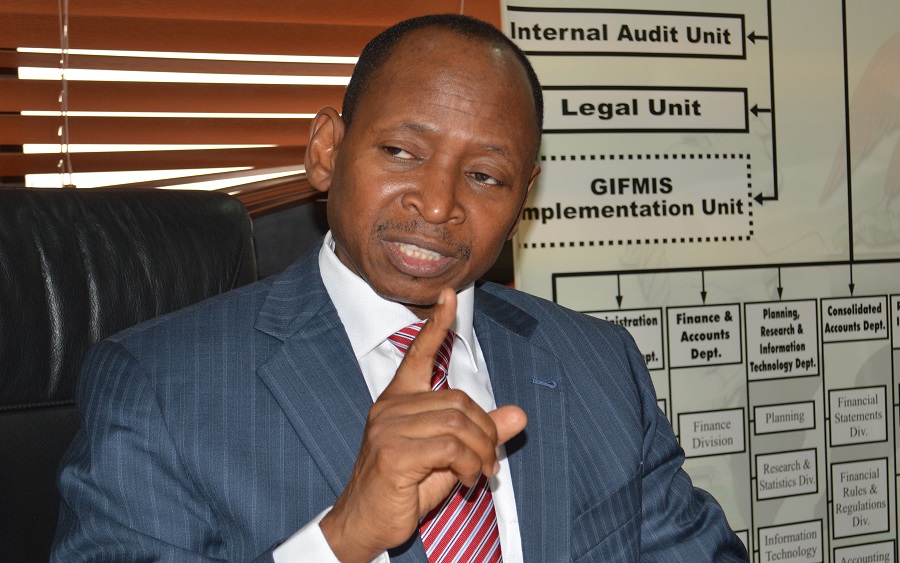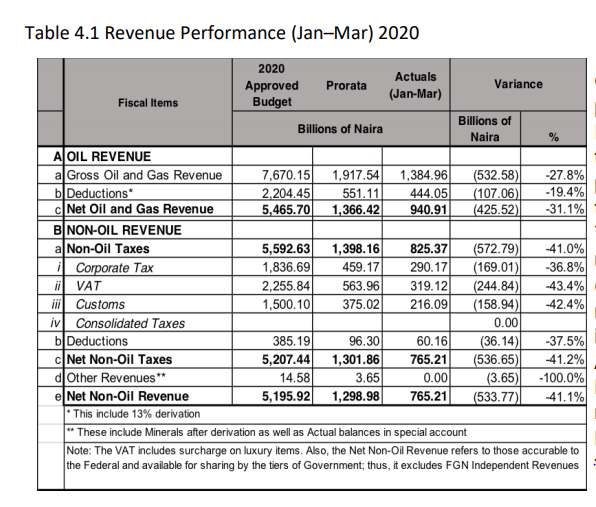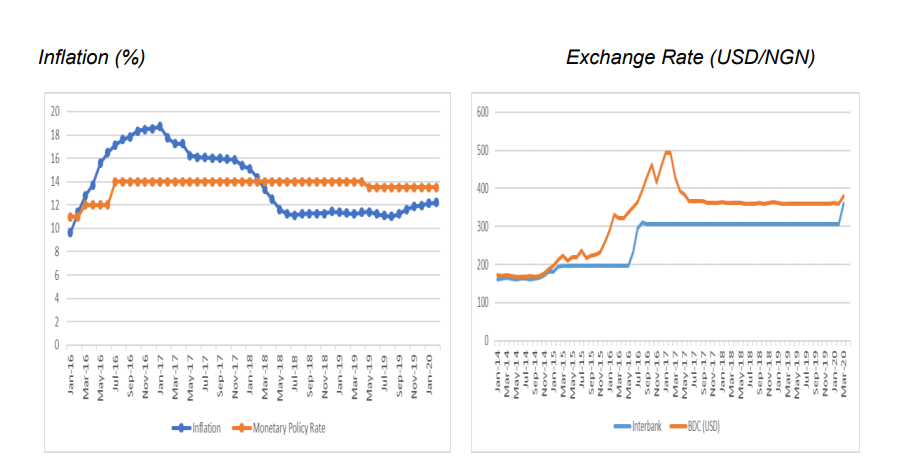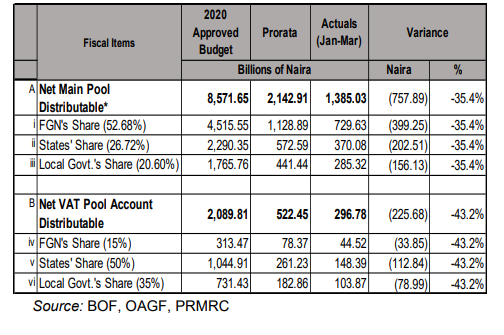The Federal Government has revealed that the country’s gross revenue rose to N653.35 billion in June 2020. This is a N135.55 billion increase from N517.8 billion generated in May 2020.
The growth in revenue was driven by the recovery of crude oil sales, an increase in Value Added Tax (VAT) and the recent devaluation of Naira on the foreign exchange.


Announcing the revenue for the month of July, the Accountant General of the Federation, Ahmed Idris, explained that the N653 billion generated is for the states, LG and the Federal Government.
Over N1.12 billion shortfall in the first 5 months
This increase in revenue comes as a welcome boost after the country lost 44% of its budgeted revenue in the first 5 months of the year. Total revenue came in at N1.48 trillion as against the N2.6 trillion budgeted for the period.
Although revenue underperformance isn’t new to Nigeria, the shortage during the period was caused mainly by the effects of the COVID-19 lockdown.


However, with the lockdown already lifted, the gross revenue figures for the month has started to rise again with N653 billion in June. The revenue generated is, however, lower than the N762.59 billion generated in June last year.
The growth in revenue in June was driven by the following factors.
VAT increase – The federal government, earlier this year, increased the value-added tax on goods and services from 5% to 7.5%. The increase significantly impacted the VAT proceeds added to the revenue generated into the federal account monthly.
Naira Devaluation – Following the pressure the recent drop in oil price had on Nigeria’s crude-dependent economy, the FG increased the official exchange rate by 5.5% to N381. According to the accountant-general, the government earned about N42.83 billion from exchange rate gains after devaluation.
While the devaluation doesn’t favour businesses in the country, the revenue from foreign exchange gain will probably increase as the government is apparently considering more devaluation of the Naira. The central bank governor, Godwin Emefiele, confirmed some weeks back that the apex bank was considering devaluing the naira around the NAFEX rate which is currently around N388/$1.


Rising Oil sales – The general lockdown that followed the outbreak of the COVID-19 pandemic not only cut oil prices, it also affected the volume of sale of crude oil which is the nation’s main export. This significantly reduced government generated revenue, creating a large financing gap for the country.
However, with most of the lockdown lifted, the global benchmark Brent has since recovered to about $43 a barrel from a 21-year low below of $16 in April. This recovery has helped increase the revenue generated by the country in the month of June.
Nigeria is Broke
Despite the bounce back in June, Nigeria is still broke, falling short of the revenue target for the year. This is after revising the budget to reflect the effect of the pandemic.
According to FG’s Medium Term Expenditure Framework and Fiscal Strategy (MTEF), as of May 2020, FGN’s retained revenue was N1.48 trillion, 56% of target.


The document broken down shows that FG’s share of oil revenues was N701.6 billion while non-oil tax revenues totalled N439.32 billion. This represents 65% of the revised target in the budget.
VAT stood at N68.09 billion representing 58% of the target in the revised budget, while Customs collection was at about N158 billion, 73% of its target in the revised budget.
In summary, the Nigeria government is in need of funds and the current revenue stream though rising, isn’t enough. A $3.5 billion world bank loan is expected in September to help augment government expenditure. However, the government may start to consider more increase in taxes and naira devaluation because even that loan won’t be enough.






